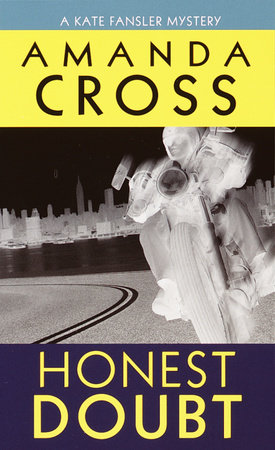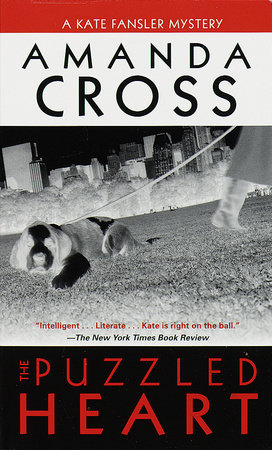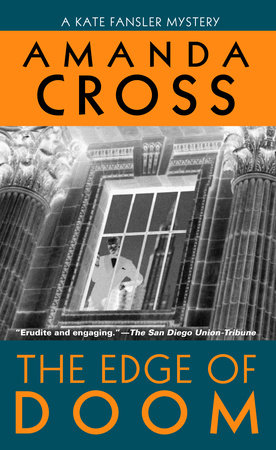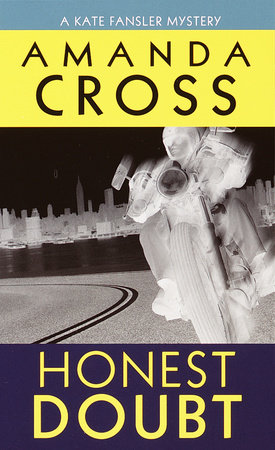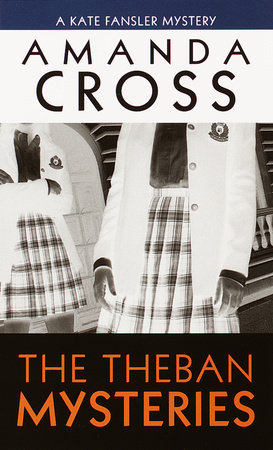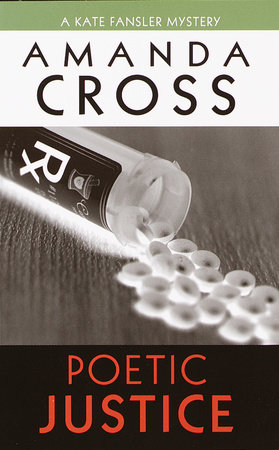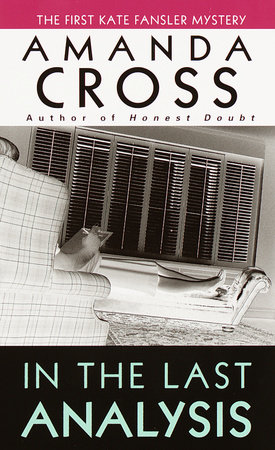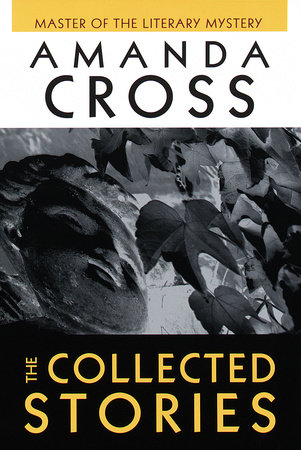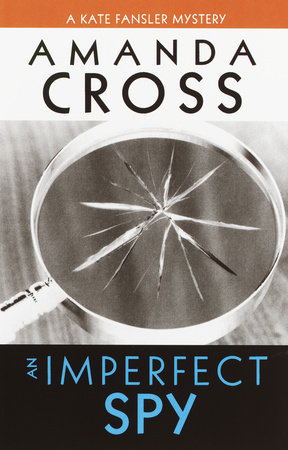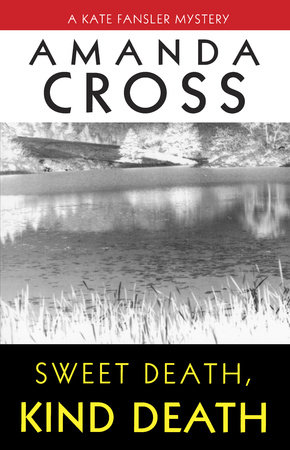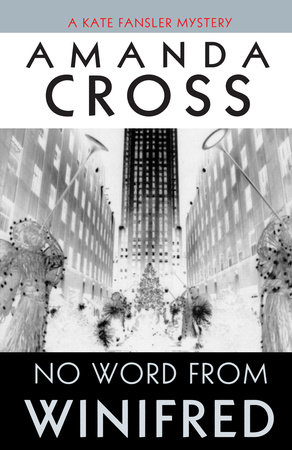Excerpt
Honest Doubt
CHAPTER ONE"Some work of noble note, may yet be done."
--
Tennyson, "Ulysses"When I had finished writing up my report, covering everything in the
investigation as it then stood, I leaned back in my chair and gave myself
up to facing facts. So far, so good, but only so far and no further. I
knew the moment had come to call upon Kate Fansler.
She had been recommended to me as the logical, perhaps the only person who
could be of help at the current impasse. As a private investigator of some
reputation and accomplishment, I never shy away from consulting anyone who
can offer me a shove, however minimal, in the right direction, but Kate
Fansler gave me pause. She was a detective herself, if strictly amateur,
and a professor into the bargain. I don't mind asking experts for
explanations in any abstruse field--I'm ready to admit what's beyond my
powers--but I couldn't help fearing that the air that lady breathed was a
little too rarefied for my earthly self.
And then of course there was the fact that she was said to be slender. I,
being fat, dislike thin women--I'm more open-minded about men--and in the
end I admitted this to my client, the one who had suggested Fansler. I was
guaranteed that though she was undoubtedly skinny--that term, being vaguely
insulting, appeals to me--Fansler never worried about her weight or
threatened to go on a diet.
If there is one thing more revolting than another, it is thin women
complaining about their fat and screaming about their need to lose weight.
Not Fansler, I was assured. With her it's a matter of metabolism--genes,
really. She eats what she wants and hates health food and any form of
low-fat diet, my client told me. Well, blessings are unevenly distributed
in this world, though Hindus think we all earned our fate by our actions
in a previous life. I probably was starving, skeletal, and yearning for
food every minute of the day and night. Hence my current figure.
I'd gone to many doctors and diet specialists, all of whom tried to
determine why I was fat, and how I might get thin. It was always assumed
it was some problem with my psyche. One day I happened to meet up with a
doctor who explained that there was such a thing as an inherited tendency
to largeness. He held to this view even under my vigorous
cross-examination. I began not only to accept the fact that I was fat,
that my father had weighed three hundred pounds and my mother not far
behind, but that, furthermore, once people got used to the idea of my size
it might not matter that much anymore. It was genes with me, same as with
Fansler.
But of course it still matters. I collect plump people who are
accomplished as well as heavy. It helps to knit up my raveled self-esteem.
People seldom realize it, but fat is the only affliction that has never
been protected by affirmative action, antibias laws, or any other category
like sexual harassment, date rape, or domestic violence, though I seem to
remember someone once wrote a book called Fat Is a Feminist Issue. The
point is, it's okay to say and do anything to fat people short of murder,
and to refuse them a job because you think their failure to lose weight is
a character and mental defect. They don't even call it heft-disadvantaged
or weightily challenged.
There was Nero Wolfe. It's easier for men, of course, with this as with
everything else. Dorothy Sayers was fat. When she lived in Witham, they
used to say that her husband drank and she ate. When she wasn't
translating Dante, that is. When she'd had enough of Peter Wimsey. I'm
afraid I've gotten in the habit of mentioning my size to bring it out into
the open when I meet someone so that we can go on to other things. I'd
have to be careful not to overdo that with Kate Fansler.
Enough, I told myself firmly. Without thinking about it too much, I picked
up the phone and called her, introducing myself as recommended to her by
Claire Wiseman, who used to teach at Clifton.
"Ah," Fansler said, "what Charles Dickens called a mutual friend." She
made an appointment to see me at her home the next afternoon.
My name is Estelle Aiden Woodhaven, licensed as a private investigator;
everyone calls me Woody. Estelle was my grandmother's name; Aiden is what
they would have named me if I'd been a boy, which they had rather hoped I
would be. It's easy to figure out what Woody is short for; I think it
definitely sounds investigative, which Estelle certainly does not. One of
the fancy academic types I've been dealing with said it sounded
androgynous, so people wouldn't know I was a woman until they were
face-to-face with me. Right, I thought; and they wouldn't know I was fat,
either.
Of course, I didn't say all this to Kate Fansler when I met her the next
afternoon; I just drew attention to my size, because I find it's necessary
to assure clients and those I consult that I may be fat, but I can get
around. In fact, I told her, I coach a college hockey team--field hockey,
not ice; I'm also trained in self-defense. Also, I pointed out, there's an
advantage in looking like a lazy linebacker if you're not really sluggish.
"Sorry to have put you through all that," I said to Kate Fansler. "I guess
the thought of talking to you made me nervous."
Kate opened her mouth and closed it. She put on glasses to read the card I
had handed her, which she had been too polite to look at while I was talking. Now she gazed at me over her glasses, which gave her the look of a psychoanalyst I'd once gone to, another thin dame, who had knitted throughout our sessions when she wasn't peering at me over her spectacles. She hadn't helped me at all, and neither had any of the other shrinks I'd been advised to consult.
"I didn't know anyone played field hockey anymore," Kate said. "We used to
play it in school; I was a wing--much smacking of ankles with sticks."
"Not if it's played properly," I said with dignity.
"I shall come by one day and watch the team you coach," Kate said.
"Meanwhile . . ."
"What am I here for? My usual tasks involve divorce, theft, blackmail,
suspicions of commercial cheating. Now I've been hired for a job that's a
bit beyond my scope; I was hoping to hire you as a consultant, a
subcontractor, whatever. Is there a chance you might agree?"
"There's a chance I might listen. May I venture a guess that your case has
to do with an academic or literary matter?"
"They said you were a good detective."
Kate smiled. "It hardly took detective powers to guess that. Tell me about
it, and we'll see if I think I can help. Won't you sit down?" she said,
waving toward a chair. I had been standing while I made my speeches and
handed her my card. Now I sat.
"Can't I get you a cold drink?" Kate said. It was late September but
really hot--Indian summer or something. Even though riding a motorbike is
cooler than walking, you're still moving through the humidity and heat and
likely to be sweating upon arrival. Not that a taxi would have been much
better; they aren't really air-conditioned whatever they claim. The subway
cars are cool enough, but the stations are Turkish baths.
"A glass of cold water would be welcome," I said. I seemed to take a lot
of time deciding what to say to her. She left the room to fetch my drink,
and I took the opportunity to look around. I'm not much interested in
furniture as a rule; I only notice it when it concerns some problem I'm
trying to figure out. I'm good at noticing; any half-decent detective has
to be good at noticing, but I don't sit around describing everything to myself the way they seem to do in books. This room was appealing, however, cool of
course--there was an air conditioner--but also comfortable, as though they'd
bought some pretty good furniture a while back and just let it grow old
along with them. A bit shabby, I guess it was, but you didn't get the
feeling they were trying to impress anyone with their good taste. This was
just a room to sit in.


